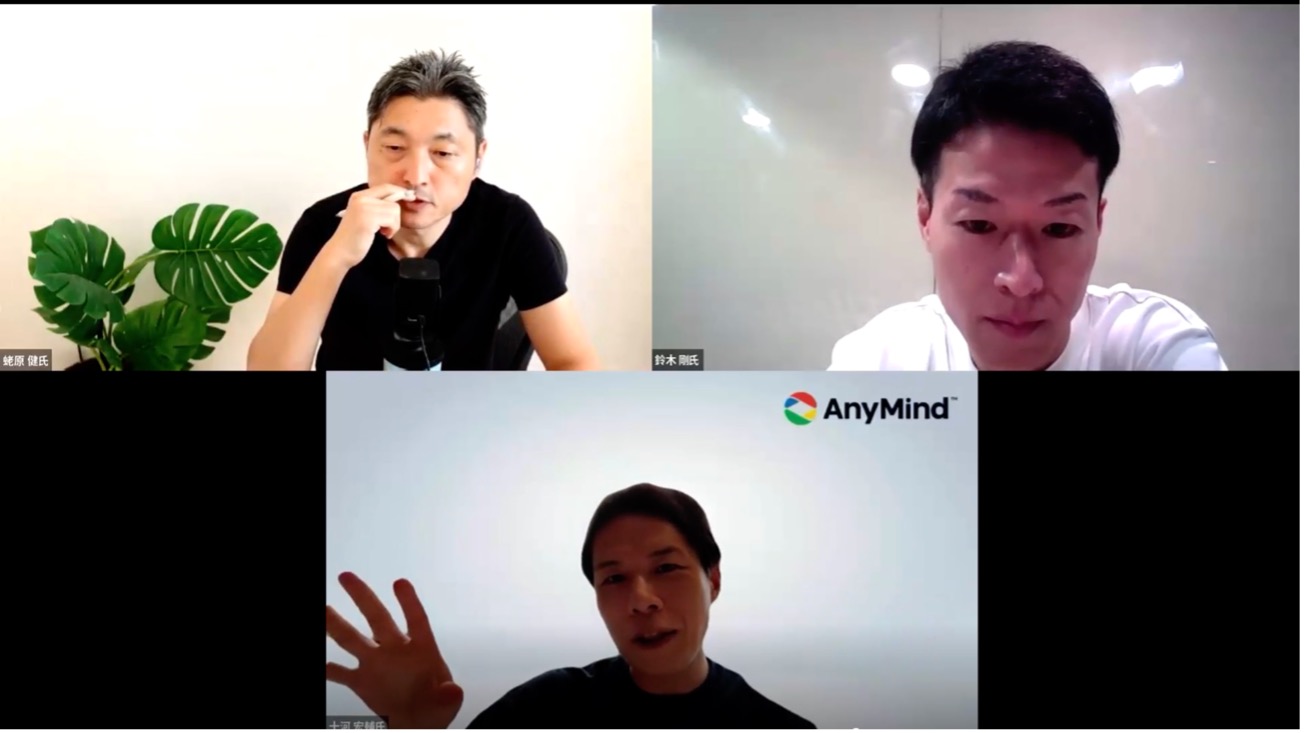X-HUB TOKYO, which aims to support the global activities of startups in Tokyo, held the X-HUB TOKYO #3 Overseas Expansion Seminar 2025, titled “Forefront of Expansion into Singapore and Indonesia” on July 9. This seminar was designed for startups aiming to expand their businesses overseas, with the objective of providing practical insights into the latest market trends and strategies for entering the Southeast Asian market.
During the first half of the event, Mr. Takeshi Ebihara, Rebright Partners Pte Ltd., Founding General Partner, a venture capital firm specializing in India and Southeast Asia, was invited to share an overview and characteristics of the Southeast Asian ecosystem, focusing on Singapore and Indonesia, and to highlight key points for expansion. His presentation incorporated quantitative data to provide a comprehensive perspective.
In the latter half of the event, facilitated by Mr. Ebihara, Mr. Kosuke Sogo, CEO and co-founder of AnyMind Group Inc. and Mr. Go Suzuki, Board Director, Head of Overseas Business Division of Terra Charge Corporation talk about their firsthand experiences into Singapore and Indonesia, as well as insights and challenges they encountered in these markets, with specific anecdotes shared to provide concrete examples.
Keynote Speech: Ecosystem of Southeast Asia
 Mr. Takeshi Ebihara
Mr. Takeshi Ebihara
Founding General Partner, Rebright Partners Pte Ltd.,
- To begin, we invited Mr. Takeshi Ebihara, Founding General Partner of Rebright Partners, a venture capital firm specializing in India and Southeast Asia that operates from three hubs in Singapore, Bangalore in India, and Tokyo, to discuss the funding environment and market characteristics across Southeast Asia.
-
Looking at the total amount of startup funding in 2024, Southeast Asia experienced a decline to approximately $5 billion, falling below Japan’s level. Just a few years ago, the region’s funding scale was about three times that of Japan, making this a significant slowdown. Based on our observations, the funding environment has become increasingly challenging in recent years.
The Southeast Asian market is characterized by three major attributes: “Fragmented,” “Unorganized,” and “Leap Frog.”
First, the market is “Fragmented,” as the business environment varies significantly across countries and regions. Second, it is “Unorganized,” with the majority of businesses consisting of small-scale or micro-enterprises that lack modern management practices and investments. Lastly, the market demonstrates “Leap Frog” development, where the absence of legacy eco-systems enables digital-native innovations to emerge and scale more rapidly than in developed countries.
In such a complex market, it is essential to have a team that is deeply embedded in and highly knowledgeable about local circumstances. Additionally, as funding has become more challenging recently, the ability of a business to generate profits is being scrutinized more rigorously than ever before. This marks a shift, where not only short-term growth but also the capacity to achieve sustainable profitability is becoming increasingly critical..
- Could you share insights into the characteristics of the startup ecosystem and market in Singapore and Indonesia within Southeast Asia?
-
When examining Singapore’s characteristics and role, it can be categorized into four key aspects: “Regional Hub,” “Financial Hub,” “High-Tech City,” and “Open Innovation City.”
First, due to its geographical advantages, establishing a base in Singapore enables companies to oversee ASEAN as well as entire Asian market, making it a preferred location for many global enterprises’ Asia headquarters. Additionally, Singapore function as the “Delaware” of Southeast Asia, with numerous startups incorporating their businesses here and leveraging it as a hub for fundraising. Moreover, the collaboration between startups and corporate new business development teams is flourishing, creating a dynamic ecosystem that fosters innovation across Asia.
On the other hand, Indonesia is the largest economy in Southeast Asia. With a population of approximately 300 million and a GDP accounting for about one-third of ASEAN’s total, it stands out as a pivotal market in the region. Particularly remarkable is the rapid growth of its digital economy, whose transaction volumes rivaling those of Japan and comprising around 60% of ASEAN’s total. This growth is fueled by “Leap Frog” development, where digitalization has advanced rapidly, bypassing traditional infrastructure development. Beyond its significant market size, the entire society is undergoing a digital transformation, positioning Indonesia as a country full of opportunities for Japanese startups.
- Finally, please share some strategies and key points for Japanese startups looking to expand into Southeast Asia?
-
The first and most important step is to determine whether your business aligns with a “global model” or a “local specialization model.” This involves evaluating whether your business can remain competitive on a global scale or if it should focus on excelling within a specific market. Gaining clarity on the nature of your business is the foundation for a successful overseas expansion strategy.
It is also crucial to realistically estimate the Total Addressable Market (TAM) and build the “right team” locally to address the market. One of the most critical steps in this process is the recruitment of local executive talent. Additionally, careful consideration of the shareholder structure is essential. When expanding a business overseas, having local conglomerates or major enterprises as shareholders can provide significant advantages in areas such as business development, establishing trust, and talent acquisition. Each of these decisions and strategies plays a pivotal role in determining the success or failure in the complex and dynamic Southeast Asian market.
Panel Discussion
 Facilitator:
Facilitator:
Mr. Takeshi Ebihara(upper left)
Founding General Partner, Rebright Partners Pte Ltd.,
Panelist:
Mr. Kosuke Sogo(bottom middle)
CEO and co-founder, AnyMind Group Inc.
Mr. Go Suzuki(upper right)
Board Director, Head of Overseas Business Division, Terra Charge Corporation
- In the latter half of the event, we hosted a panel discussion facilitated by Mr. Ebihara, Founding General Partner, Rebright Partners Pte Ltd., The panelists include Mr. Kosuke Sogo, CEO and Co-founder of AnyMind Group, and Mr. Go Suzuki, Board Director, Head of Overseas Business Division, Terra Charge Corporation. To start, we kindly ask each of you to introduce yourselves and share insights about the businesses you are developing in Southeast Asia.
-
Mr. Kosuke Sogo (hereafter referred to as “Sogo”):
At AnyMind Group, we offer a comprehensive suite of online business support services. Our software provides end-to-end support, encompassing everything from production and e-commerce site development to marketing and logistics. We operate across 24 locations in Asia, including Vietnam, India, Thailand, and Malaysia.
In 2024, our revenue reached 50.7 billion yen, with approximately 40% of it generated from Southeast Asia. Founded in Singapore in 2016, AnyMind Group recognized the immense potential of the Asian market from the outset. With its youthful population and rapid digitalization, the region continues to drive our strong growth trajectory.
Go Suzuki (hereafter referred to as “Suzuki”):
Founded in 2022, we operate under the Terra Group’s vision of “creating a mega-venture from Japan,”. Our core business focuses on the EV (electric vehicle) charging infrastructure platform, where we have already achieved the top market share in Japan. Currently, we are expanding internationally, with established operations in Indonesia and Thailand.
In emerging markets, EV infrastructure is still underdeveloped, presenting significant opportunities for rapid adoption in the near future. Among these markets, Indonesia, with its large population, stands out as a market where we are confident in our objective to become the “number one” player.
- What has been the most challenging aspect of expanding your business in Southeast Asia?
-
Sogo: The most challenging aspect has been “building the organization.” Each country has its own unique culture and characteristics when it comes to talent, and the type of personnel required varies depending on the phase of the business. In Taiwan, we have replaced our Country Manager five times over the past eight years. This underscores how critical it is to identify the right talent and make appropriate adjustments. I have learned that the success of local operations deeply tied to appointing the right leader at the right time.
Suzuki: For us, the most challenging aspect has been consistently taking action to outperform local competitors. To achieve this, We have adopted an aggressive strategy by proactively targeting talented individuals working at competing companies and recruiting them. Using platforms like LinkedIn, we reached out to potential candidates, engaged in direct conversations with them on the ground, evaluated their capabilities, and persuaded them to join us. These individuals are often well-established in the market, with proven track records and strong networks in their industries and customer bases. As a result, they become key contributors who can accelerate the growth of our business. Rather than simply analyzing competitors, we have taken a hands-on approach by directly entering the field, recruiting top-tier talent, and enhanced both the speed and precision of our local expansion efforts.
- To conclude, could you share some advice for startups looking to expand into Southeast Asia?
-
Sogo: First and foremost, I recommend actively participating in local industry events. It’s essential to immerse yourself in the field and create as many networking opportunities as possible. Additionally, as Mr. Suzuki mentioned earlier, utilizing LinkedIn can be highly effective. It enables you to connect with local talent, gather valuable information, and even support your recruitment efforts. Southeast Asia is an incredibly exciting market with high potential. Furthermore, the region is very Japan-friendly and holds a strong sense of trust toward Japanese companies. I would be delighted to see more Japanese companies and startups take on the challenge of expanding into this dynamic market.
Suzuki: If you are considering expanding into Southeast Asia but currently lack connections in the region, I highly recommend participating in accelerator programs. Personally, I joined the X-HUB program in 2024, which provided me incredibly valuable experiences and insights. Not only did it help me build a strong local network, but it also resulted in actual contracts in some cases. Additionally, I believe it’s important to embrace the mindset of “starting even if you’re only 60% prepared.”, rather than waiting for all conditions to be perfect. In the Southeast Asian market, speed is the key to success. Taking that first step can unlock new opportunities and generate momentum for future growth.
- Thank you for sharing your valuable experiences!
- In this seminar, we focused on the characteristics of the Southeast Asian market and the attractiveness of the startup ecosystem, particularly in Singapore and Indonesia. Moving forward, X-HUB TOKYO will continue to deliver the latest information on the characteristics and attractions of overseas startup ecosystems, as well as strategic approaches for expanding abroad.
*The information in this report is as of the date of the seminar.

